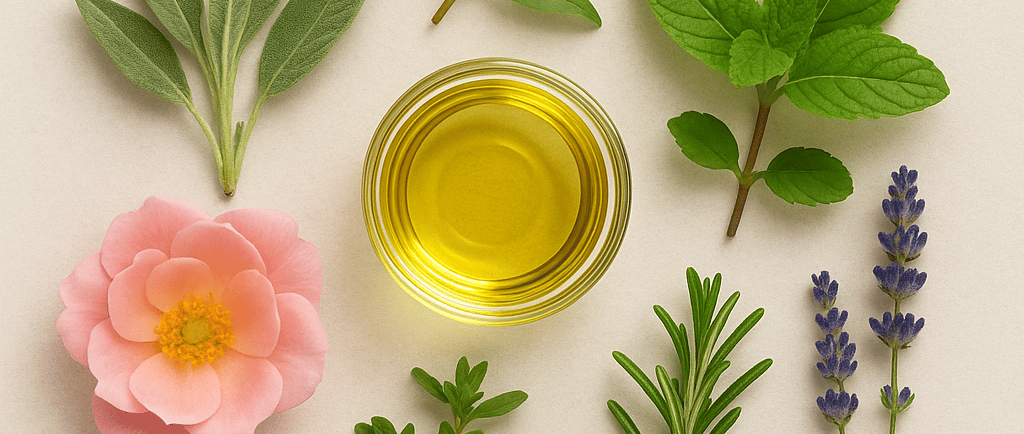Do Botanicals Really Work for Skincare?
Botanicals work not by “perfecting” the skin, but by supporting it — balancing inflammation, strengthening the barrier, and nourishing the layers with compounds the skin recognizes and loves. They invite us to think of skincare not as correction, but as connection. To care for our skin the way we would care for a garden: gently, daily, and with awe.
SKINCARE
6/30/20252 min read


Why Are Botanicals Good for the Skin?
Botanicals are good for the skin because they harness the healing, nourishing, and protective properties of plants - gifts from nature that have been used for centuries in skincare rituals around the world.
1. Rich in Antioxidants: Botanicals like green tea, rosehip, and chamomile are packed with antioxidants that help neutralize free radicals, which can damage skin cells and accelerate aging.
2. Naturally Soothing: Plants like calendula, aloe vera, and chamomile reduce redness, irritation, and sensitivity.
3. Hydrating and Nourishing: Botanical oils like jojoba, argan, and sea buckthorn provide deep hydration with essential fatty acids and vitamins.
4. Gentle Yet Effective: Botanicals such as willow bark offer acne-fighting benefits as natural alternatives to synthetic ingredients.
5. Aromatic and Sensory Benefits: Essential oils and floral waters promote emotional wellness through scent and touch.
6. Support Skin's Natural Balance: Botanicals help restore skin equilibrium, regulate oil, and support clarity.
Do Botanicals Really Work for Skincare?
In a world full of synthetic formulas, many are returning to the earth for skincare solutions. But do botanicals really work? The answer is yes - when used thoughtfully and in harmony with the skin.
A Tradition as Old as Time
Humans have long turned to plants for healing. Ancient Egyptians used aloe and myrrh; Ayurveda values turmeric and neem; Traditional Chinese Medicine uses ginseng and goji berries. These practices weren't about vanity, but about harmony between body, skin, and spirit.
What Are Botanicals in Modern Skincare? Today, botanicals include plant-based extracts, oils, waters, or actives. These include:
Oil-based: rosehip, jojoba
Water-based: aloe vera, hydrosols
Extracts: calendula, green tea
Powders: matcha, clay
They provide vitamins, antioxidants, and phytonutrients that work in synergy.
What Does Science Say?
Scientific studies now support many botanical benefits:
Green Tea: contains EGCG, which reduces UV damage and inflammation.
Chamomile: rich in apigenin, it soothes and calms the skin.
Rosehip Seed Oil: high in vitamins A and C for regeneration.
Licorice Root: brightens skin and calms redness.
Are Botanicals for Everyone?
Botanicals are generally well tolerated, but they can still trigger allergies. Choose fragrance-free products, patch test, and ensure high-quality, transparent sourcing.
Beyond the Skin - A Ritual of Care
Botanical skincare isn't just effective - it's ritualistic. Applying a balm or misting with lavender hydrosol becomes an act of self-care. Healing isn't forceful; it's tender.
Conclusion: So, Do Botanicals Really Work?
Yes - botanicals support the skin by balancing inflammation, strengthening the barrier, and nourishing naturally. They don't promise perfection but offer a gentle, sustainable path to wellness.
NURTURE
Sustain
Care
© 2025. All rights reserved.
